I was watching Tagesschau (German news) the other night and saw a report about an exhibition in Dusseldorf on (West?) German café culture and it reminded me of yet another corner of Germany I found magical – the café.
The first time I encountered one was when I was an exchange student and we had just completed one of my guest family’s weekly shopping excursions to Mönchengladbach. We had just gathered everything we needed from the shops in the Fußgängerzone (pedestrian street) when my host mother announced that we’d be making one final stop.
“Can’t we just go home?” I thought. I wanted to go back to reading Asterix and Obelix in my room rather than sweat through more small talk in my emerging German.
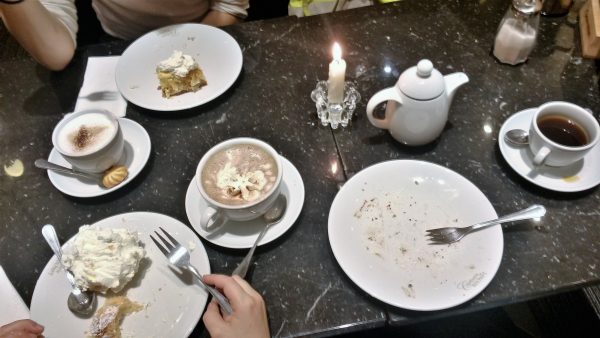
Inside, the café was as busy and crowded as the shopping street outside. A glass counter full of cakes and pastries ran the length of its lower level and was backed by middle-aged women in what looked like maid’s outfits. They seemed harried. But what cakes!
“Pick out any piece and I’ll find a seat,” my host mother said. I started to sweat. I’d been in-country about two months, my German wasn’t even at immigrant cab driver level and I had no idea how a German café worked.
I had no idea how to pick out a piece of cake.
My host mother sensed my confusion and said as she walked away, “Tell the woman what piece you want and bring me the piece of paper.”
A piece of paper. Right. I thought I was supposed to get cake.
One of the maids behind the counter asked me what I wanted and I pointed at a piece. She then tore a piece of paper in half and handed me one half about the size of a price tag. It was yellow with a printed number in black. And she had scribbled something in red on hers. Maybe a number. Maybe code. Maybe a plea for help.
The piece I ordered probably had chocolate pieces on chocolate icing spread on top of chocolate cake with fluffy chocolate filling. I know my teen-age self. And knowing my host mother, she had probably picked out something with fruit.
Host mothers always get something with fruit.
After ordering, I found my host mother upstairs perched at a two-top against a window. We could watch the chaos outside while suffering from the chaos inside. There were people everywhere, inside and out.
German Cafes
I wondered how my cake would make it from downstairs to upstairs. How it would make it through all those people. I figured it probably wouldn’t but I masked my disappointment and smiled in agreement when my host mother offered to order me a hot chocolate.
At least I’d get some chocolate.
“Kännchen oder Tasse (pot or cup)?” she wanted to know. At the time, I had no idea what she was asking so I just stared back. She waved me off.
Our waitress arrived, also wearing a maid outfit, and my host mother ordered our drinks and handed her our pieces of paper. I had no idea what was going on but I was confident I wouldn’t be eating cake.
Would our new maid try to describe us to the maid downstairs to get our cake order? How would that work? What if their descriptions didn’t match up and we ended up with cookies or, worse, no cake?
I had no time to make small talk with my host mother, I was busy mourning the loss of my cake.
Then, a few minutes later, our waitress reappeared with our drinks. Our drinks! I didn’t just get a hot chocolate. I got a kännchen – my own little pot of hot chocolate! What? Magic!
Also, the waitress had our cakes. The right cakes.
I know, right? More magic!
Kaffee und Kuchen
The system made no sense to me so my host mother explained it to me – the first woman-in-a-maid’s-outfit behind the counter put a piece of paper identical to my piece of paper on a plate with my cake order and our waitress just matched up the pieces of paper.
It still seemed miraculous to me, as if my cake had floated out of the display case, through all the people and up the stairs to me. In Mönchengladbach.
“It still seems magical to me,” my wife said last night when I recounted this story. We used to go to Café Richter in Charlottenburg in Berlin because they sometimes had the tiny pieces of paper. The Tagesspiegel once did a story on what it dubbed Schnipsel-cafés (scrap of paper cafés) in Berlin, after the pieces of paper used to record the cake orders.
The magic of that Schnipsel-café in Mönchengladbach stayed with me for over a decade until I returned to Germany as a reporter in Frankfurt. I made my co-workers go with me to Café Liebfrauenberg because I knew they’d do the German trick with the kuchen (cake) and paper there.
My co-workers weren’t impressed by the ordering system but they loved the cakes. And they thought the Kännchen were pretty impressive too.
Leave a Comment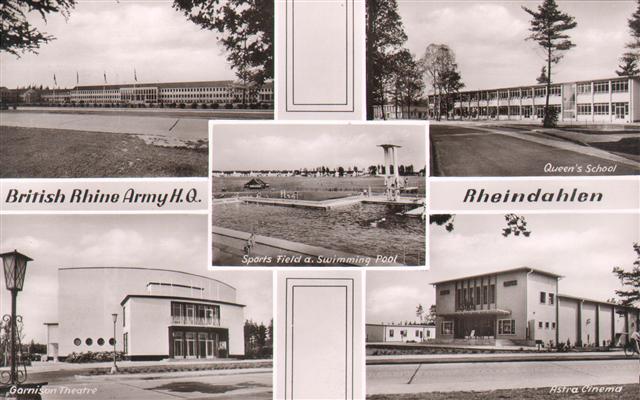
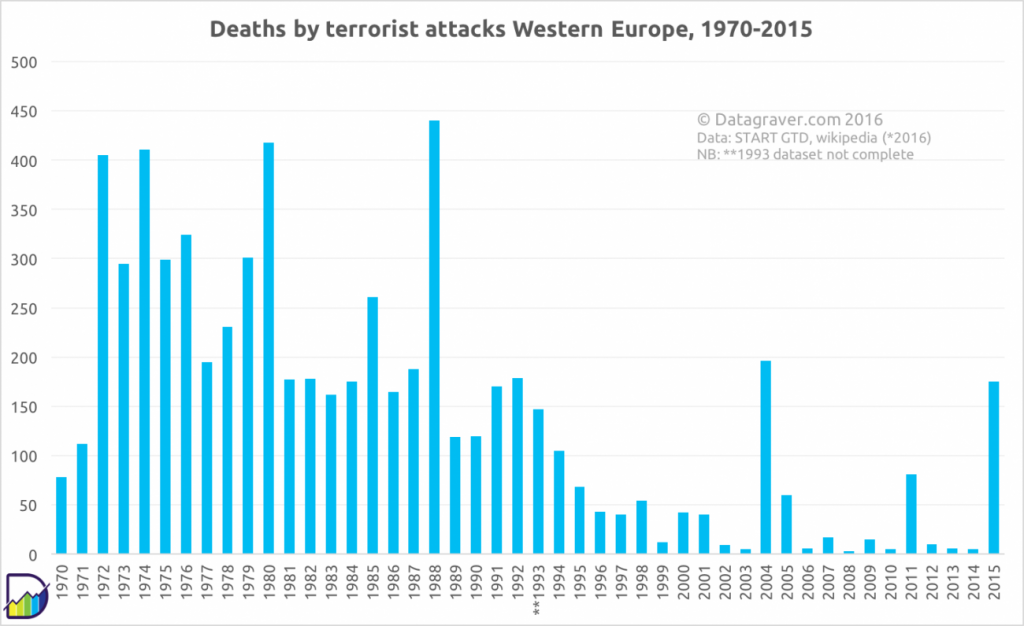
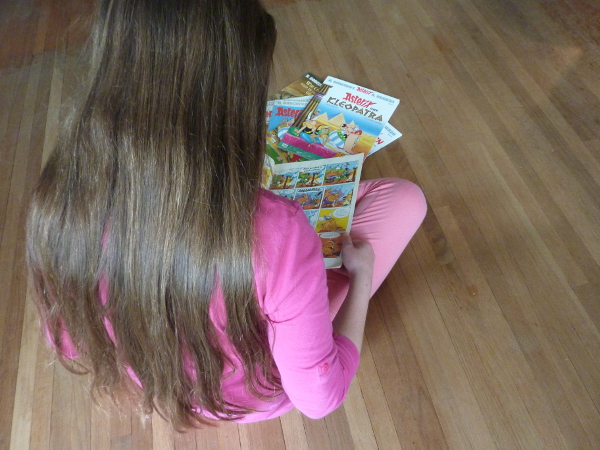
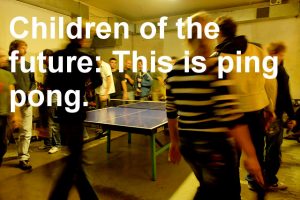
![tumblr_inline_nzkq3sFpWx1sqqghr_500%255B1%255D[1]](http://howifoughtthegermansandwon.com/wp-content/uploads/2016/01/tumblr_inline_nzkq3sFpWx1sqqghr_500255B1255D1.jpg) I came from a country where train delays weren’t measured in minutes or even hours but rather days. In my childhood, American passenger trains were never delayed by things like inclement weather or suicidal twenty-somethings. They seemed to suffer from depression, only getting up the nerve to traverse the country after a couple of stiff whiskeys and a stern talking to by the Minister of Transportation.
I came from a country where train delays weren’t measured in minutes or even hours but rather days. In my childhood, American passenger trains were never delayed by things like inclement weather or suicidal twenty-somethings. They seemed to suffer from depression, only getting up the nerve to traverse the country after a couple of stiff whiskeys and a stern talking to by the Minister of Transportation.![tumblr_inline_nzkos3mfDR1sqqghr_500%255B1%255D[1]](http://howifoughtthegermansandwon.com/wp-content/uploads/2016/01/tumblr_inline_nzkos3mfDR1sqqghr_500255B1255D1.jpg)
![tumblr_inline_nzkossZHc51sqqghr_500%255B1%255D[1]](http://howifoughtthegermansandwon.com/wp-content/uploads/2016/01/tumblr_inline_nzkossZHc51sqqghr_500255B1255D1.jpg)